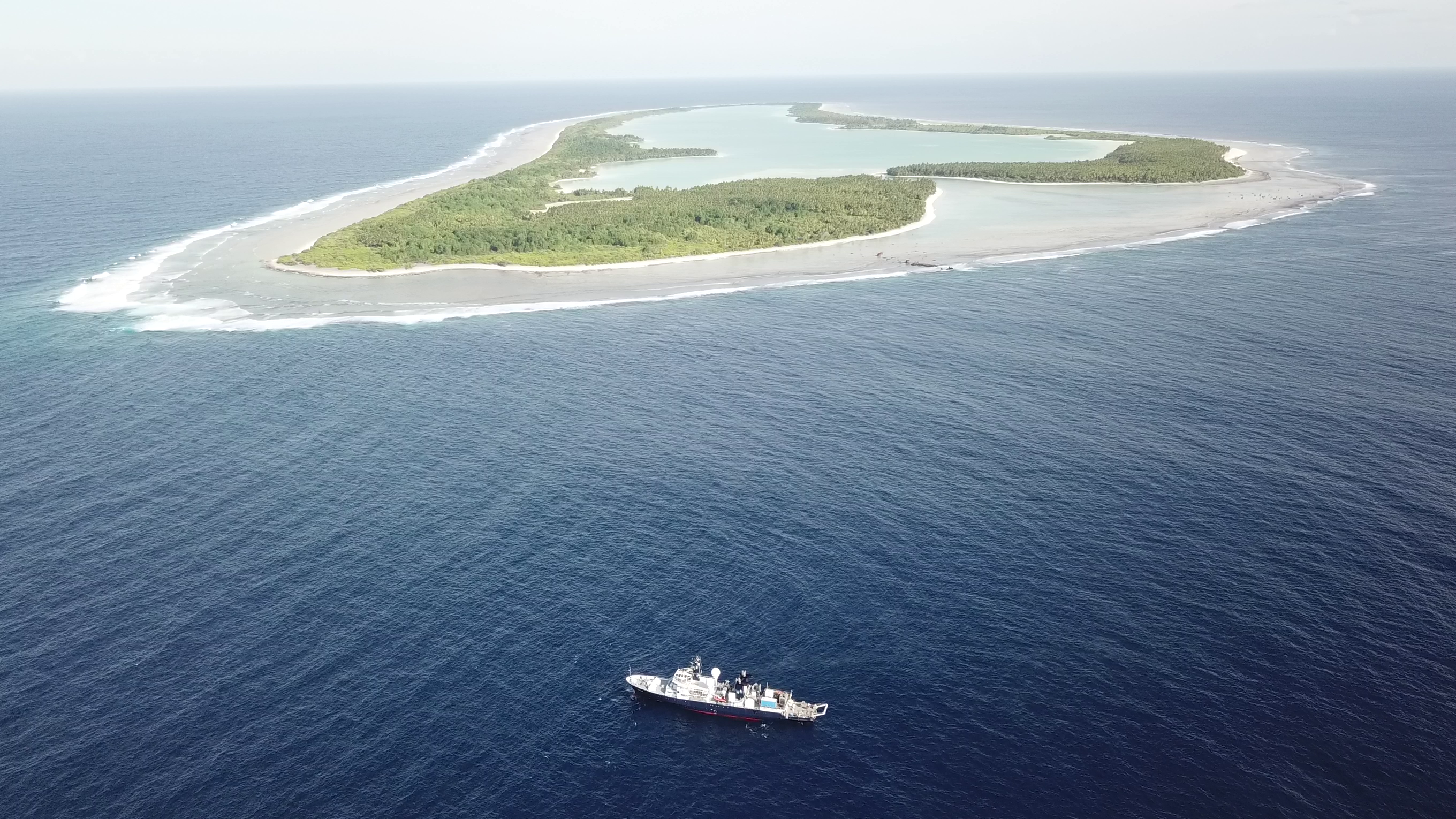Like an expert moviegoer who can instantly recognize a director’s aesthetic signature in a new film, our cells have special sensors called pattern recognition receptors that fire up the immune system when they encounter common microbes’ molecular signatures.
One of these signature structures is lipopolysaccharide (LPS), a long chain of sugars anchored to the cell membrane of many types of bacteria. LPS is so iconic that many researchers assumed our bodies could recognize it from any microbe. But a new study reveals that there are strains of deep-sea bacteria whose LPS is essentially invisible to our pattern recognition receptors.
In 2017 a team of scientists set sail on the Schmidt Ocean Institute’s research vessel Falkor for the Phoenix Islands Protected Area (PIPA) in Kiribati—one of the planet’s largest protected marine areas.
As part of their exploration of the largely untouched ecosystem, the researchers collected bacteria from as deep as 3,000 meters (nearly two miles) beneath the ocean’s surface. They cultured 50 microbe strains in the onboard lab and exposed them to human and mouse immune cells in a dish. The immune cells recognized the LPS on some of the new bacterial strains and reacted the way they would to seeing more common bacteria such as Escherichia coli. Yet 80 percent of the deep-sea bacterial strains were completely unrecognizable to one or both of two common LPS-detecting pattern recognition receptors.

“I think the paper is super exciting,” says Sunny Shin, an immunologist at the University of Pennsylvania, who was not involved in the study. She notes that the findings go against the prevalent understanding that pattern recognition receptors can recognize any foreign molecule. Instead the new work, published in Science Immunology, suggests that these recognition receptors have evolved to only detect local microbes.
“Our immune system certainly has a need to detect every microbe that we would see as we go to Starbucks,” says Jonathan Kagan, a co-author of the study and an immunologist at Boston Children’s Hospital. But it has no need to detect microbes that live in an environment we would never naturally encounter. Such microbes include all of these 50 strains.
Does this mean we need to worry about deep-sea microbes overrunning our immune systems? Probably not. For one, bacteria that thrive in the cold, dark saltiness of the deep ocean are not likely to do well inside our warm bodies. And the immune system has many other mechanisms for sensing invasive bacteria.
Nevertheless, this study may lead to interesting clinical applications. For a long time, researchers have considered including LPS in vaccines to help kick-start the immune system, but it causes such a strong immune response that it can be dangerous. While most of the deep-sea bacteria had LPS varieties that triggered no immune response, some provoked a moderate one. Kagan says these new LPS molecules could effectively act as a dial, possibly letting researchers working on cancer vaccines fine-tune immune responses instead of just flipping a switch between zero and 10.
The deep ocean is not a traditional place for immunology research. In fact, the study was sparked by a unique collaboration between Kagan, lab member Anna Gauthier and marine ecologist Randi Rotjan, who is co-chief scientist of PIPA. Rotjan had planned an exploratory expedition and invited Gauthier to collect and characterize deep-sea bacteria along the way.
The researchers are planning another cross-disciplinary expedition to PIPA next summer to investigate more targeted questions, such as how native deep-sea organisms such as corals respond to their bacterial neighbors, Rotjan says. But the team is open to surprises, she adds:. “That’s the beauty of basic research—you never know where it’s going to go.”
March 29, 2021 at 10:00PM
https://ift.tt/3u1WGqy
Some Deep Sea Bacteria Are So Strange, Our Immune Sensors Miss Them - Scientific American
https://ift.tt/2CoSmg4
Sea
/cloudfront-us-east-2.images.arcpublishing.com/reuters/CZF6NULMVVMEXHOP7JK5BSPQUM.jpg)
No comments:
Post a Comment